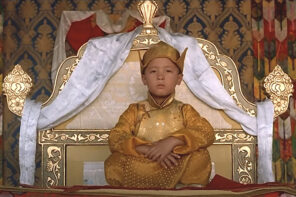From the position of a wistful and quixotic leftism, the announcement by the Nobel Committee of its decision to award President Barack Obama the 2009 Nobel Peace Prize created not so much ambivalence as dismay. And I have struggled with the meaning of the decision—interested less in having something new to say about it, and more in how to figure out how to feel about it, and how to discern its symbolic message, intended or not.
An obvious and immediate concern was that this award was tailor-made to serve the interests of the talk-show savvy political right.
And Rush Limbaugh had it right, observing quite correctly that this was “a political decision.” The Nobel Committee is a political committee, whose members are appointed by the Norwegian Parliament and are mostly comprised of persons who previously served in that body. The political leanings of many of their award decisions concerning Literature and Peace are not hard to see.
But Limbaugh goes a step further. He claims to know precisely what political message was intended. It is, he argues, an anti-surge-in-Afghanistan award..
Maybe. I’m less certain of how to read this decision as there are many ways to go. And perhaps a quick survey of several recent Nobel Peace Prize recipients who were also political figures may offer a longer historical view of the matter.
Surely the most dramatic award in recent memory was the 1978 decision to recognize two men: Anwar al-Sadat and Menachim Begin. It came again to three men in 1994: Yassar Arafat, Shimon Peres, and Yitzhak Rabin. The Nobel Committee was clearly offering its support and congratulations to renewed Arab-Israeli peace processes. The 2002 decision to make the award to Jimmy Carter seemed similarly motivated. Yet it is a cautionary tale for all of us, the fact that these several awards spanning a quarter century did not advance the cause of Arab-Israeli understanding one iota. If peace is a process, then the process has stalled completely. Many in this generation think it has stalled permanently. They no longer even see peace as a practicable goal; they accept the state of semi-permanent violent confrontation as the way of that world. The Wall is one result.
The decision to award the Nobel Peace Prize to the 14th Dalai Lama in 1989 seemed a fairly clear shot fired across the Chinese bow. At least the Chinese government read it that way. Yet here again, the decision has changed little of substance “on the ground” in Tibet.
The decision to award the Nobel Peace Prize to Mikhail Gorbachev the very next year (1990) was clearly intended as a gesture of support for his new politics of openness (glasnost) and democratizing reforms in the former Soviet Union. It was the opening of a door, a path, to fuller European-ness, with the requisite economic and political reforms. The came Yeltsin. Then came Putin. And the dream died.
The record of none of these frankly political Nobel decisions is positive. None of the political issues on which the Nobel committees intended to weigh-in have swung in the directions they desired.
And that is a cautionary tale for progressive politics today. So much depends on what the intended symbolics of this Nobel award actually were.
The irony of awarding a Peace Prize to a man currently conducting two wars, and considering the significant up-tick and expansion of one of them, was lost on no one. So if the political aim of the Prize was to weigh in on Iraq or Afghanistan, as Limbaugh suggests, then it will likely have as little impact as the previous awards I mentioned.
But what else might it be? The Nobel Peace Prize has also gone to other persons and other organizations—like Martin Luther King Jr. (1964), Mother Theresa (1979), “Doctors Without Borders” (1999). In these cases, and in many others, the Nobel Committee presumably wished to express solidarity with opposition leaders and the grassroots organizations they helped to inspire.
Might that be the subtle and half-hidden purpose of the Nobel Committee? Does this award to the current US President offer a more subtle reminder of his own roots in community organizing and his electoral refrain that change must come from the bottom up?
One can hope. For if the prize were to remind the President of those things, then it represents a powerful plea for creativity and imagination, rather than “stay-the-course” traditionalism in the face of the greatest issues before him: the economy, health care, and the wars.




